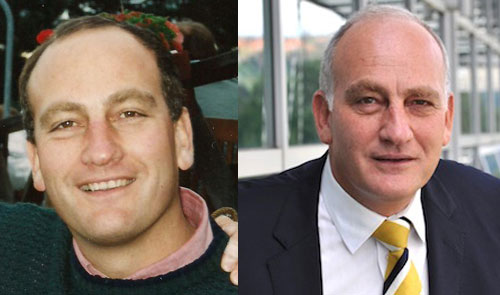
MTN SA urgently requires access to spectrum bands that will allow it to build a commercial network using next-generation long-term evolution (LTE) technology and MD Karel Pienaar believes the operator should be given early access ahead of a formal spectrum licensing process by the Independent Communications Authority of SA (Icasa).
“We are saying we need ‘interim relief’,” Pienaar says, adding that MTN is ready to build a nationwide LTE network. LTE is a precursor to fourth-generation mobile networks that will deliver much faster Internet access to consumers.
At the same time, Pienaar has hit out at Icasa for granting automatic access to Neotel, Sentech and iBurst parent Wireless Business Solutions (WBS) to big chunks of spectrum in the digital dividend bands below 850MHz that will be freed up when SA’s television broadcasters move to digital technology. He says the mobile incumbents, particularly MTN and Vodacom, have done the most to build nationwide wireless voice and data networks. MTN alone, he says, is pouring R4bn-R5bn of capital expenditure a year into expanding and upgrading its network.
Of the incumbent players, MTN has been the most aggressive in building an LTE network. It already has an extensive test network in Gauteng, with plans to expand this to other parts of the country this year. For the pilot, it has “refarmed” some of its existing spectrum allocations, but Pienaar says it is reluctant to launch a commercial LTE service without guarantees it will be given access to additional spectrum.
Icasa had been expected to award access to spectrum in the 800MHz and 2,6GHz bands in the next few months, but earlier this week pulled the plug on this plan after being extensively criticised for jumping the gun and not waiting for final policy determinations from communications minister Dina Pule.
But Pienaar is clearly champing at the bit and says Icasa ought to give operators that have a proven track record in building national infrastructure — including in rural areas — early access to the frequency bands.
“I am a strong believer in awarding those [companies] that deliver for the people of SA,” he says, adding that there is a flawed assumption by Icasa that giving spectrum to new operators will necessarily mean they will be able to build national network of any sort of scale. He questions whether companies such as Neotel, WBS and Sentech, all of which already have access to prime spectrum and which will automatically receive more in terms of Icasa’s licensing proposals, have made a difference to the majority of South Africans.
“Why award them with more spectrum?” Pienaar asks. “Rather award those that deliver.”
He says the telecommunications business is all about scale and those with scale are in a better position to deliver. “To think you can get a new player coming in that doesn’t have scale and build a network from scratch is just foolishness.”
Pienaar says MTN would like immediate access to at least 20MHz of spectrum (two paired 10MHz blocks) in the 2,6GHz band so that it can begin offering commercial LTE services. Access to the 800MHz band is less pressing because the network in the rural areas — which the band is best suited for — is not as congested, making it easier to refarm a portion of the company’s allocation at 900MHz that has historically been used for voice services.
He maintains that Icasa is wrong to want to license the newly available spectrum bands to additional players. “The existing players that have scale are being starved for spectrum and need more support.”
He adds that if Icasa presses ahead with its proposed model for allocating spectrum in the new bands, it will lead to “regulatory failure” and will “put SA back relative to the rest of the world”.
However, Pienaar concedes the big mobile operators, including MTN, need to do more to provide better and cheaper wholesale services to third parties. He hints that a more aggressive and flexible wholesale offering is on the cards from MTN, including allowing mobile virtual network operators — Virgin Mobile, which uses Cell C’s infrastructure, is the only example of an MVNO in SA — to piggyback on its network. — Duncan McLeod, TechCentral
- Subscribe to our free daily newsletter
- Follow us on Twitter or on Google+ or on Facebook
- Visit our sister website, SportsCentral (still in beta)




